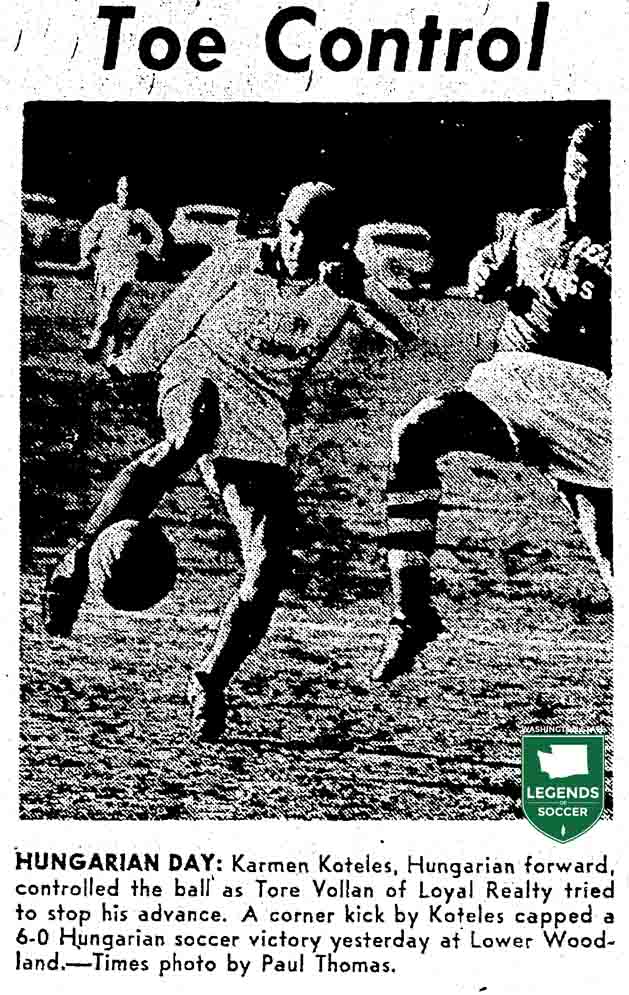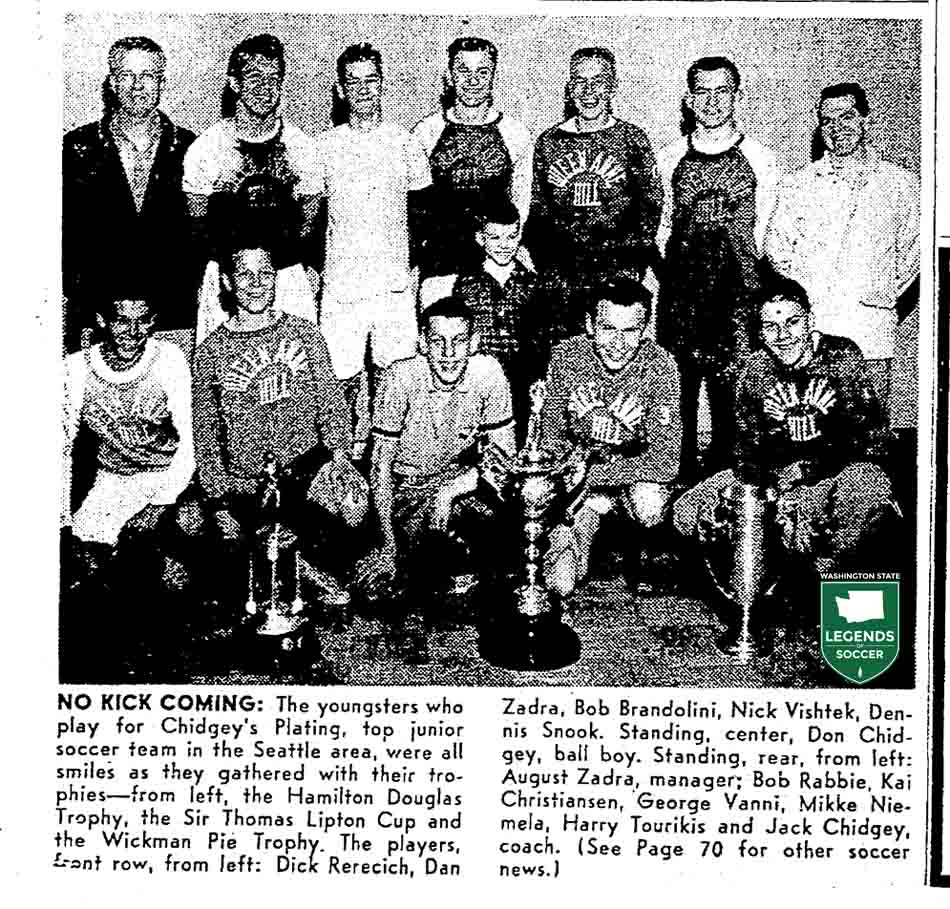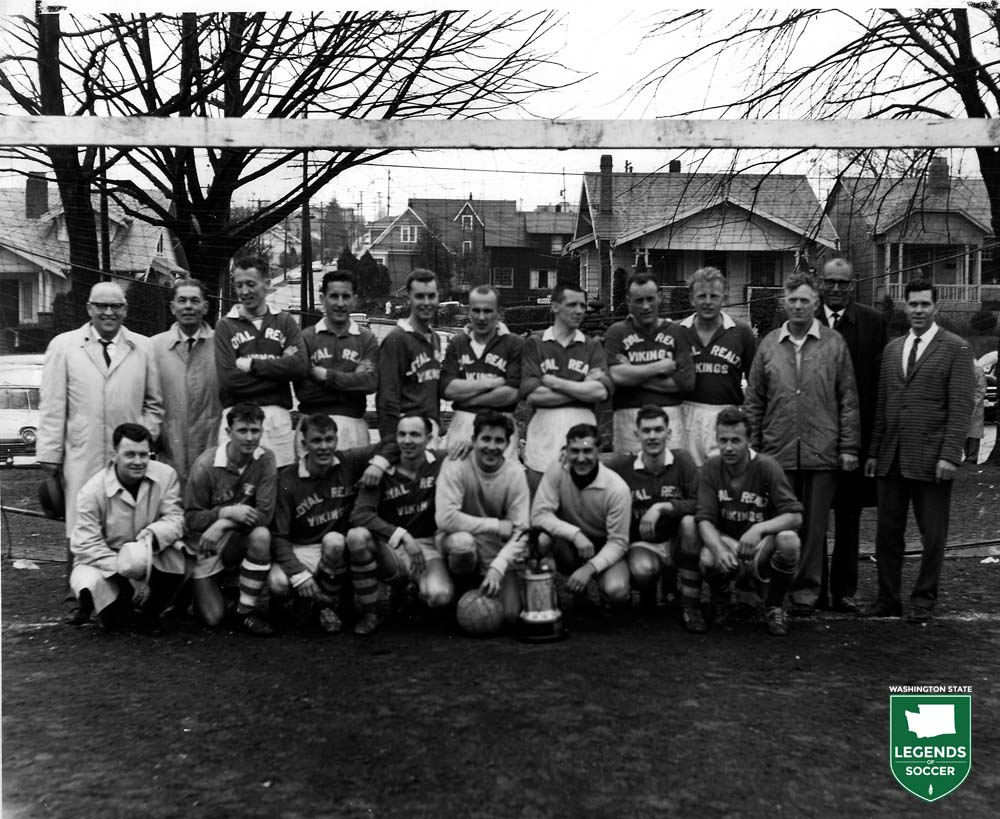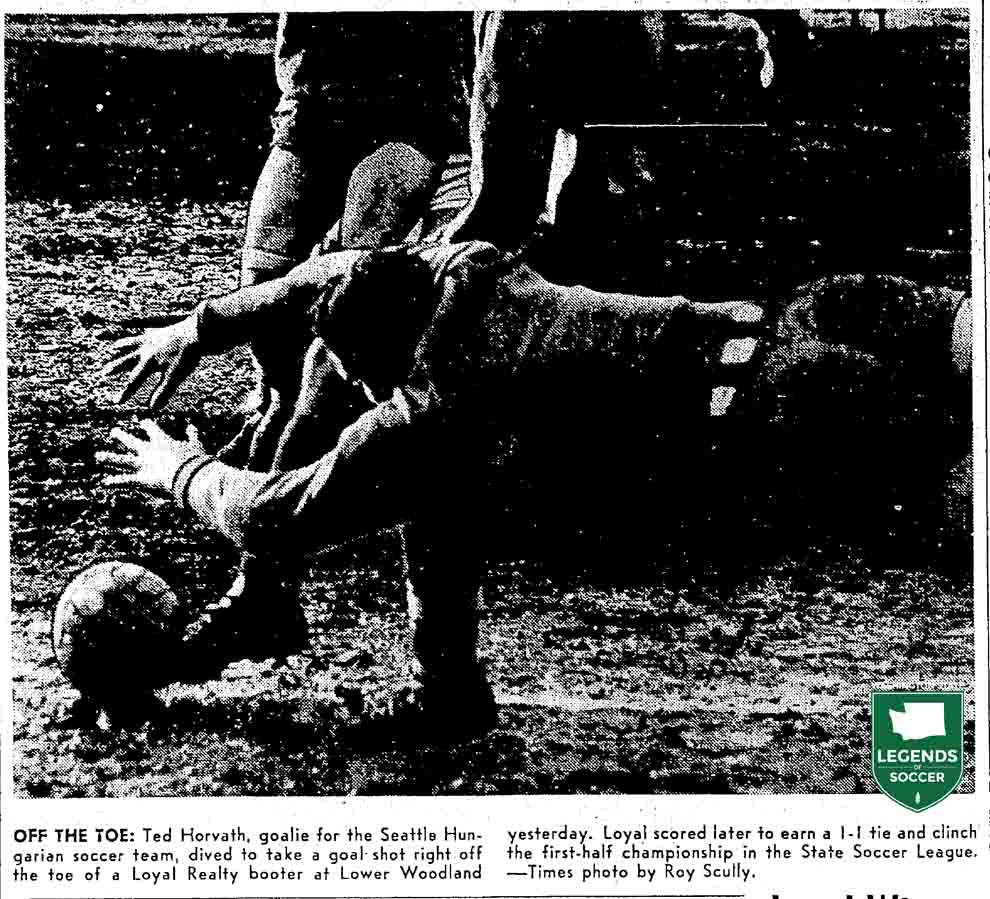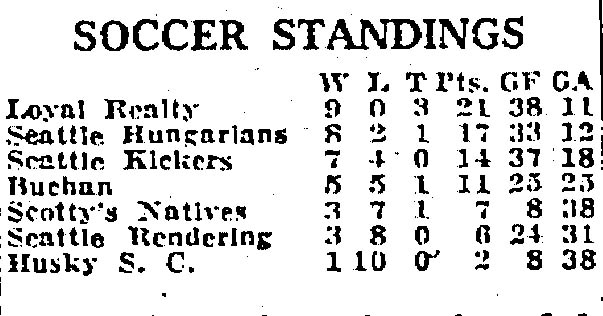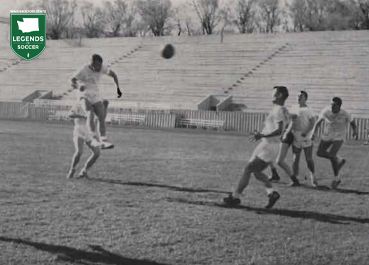1960 – Around the World and Close to Home
Nigeria andCameroon are among 17 countries in sub-Saharan Africa who gain independence from European colonial powers. An American U-2 spy plane is shot down over Russia. John F. Kennedy defeats Richard Nixon for the U.S. presidency by just 120,000 votes. Alfred Hitchcock’s Psycho frightens movie-goers around the world. Census indicates baby boom results in 20 percent increase in Washington's overall population, to 2.8 million. The City of Mercer Island incorporates. Tacoma’s Cheney Stadium is built in just three months as home of PCL Tacoma Giants . Washington makes its first Rose Bowl appearance since 1944 and upsets Wisconsin, 44-8.
The Most Magical Magyar
It’s no wonder the fans and future teammates were so anxious for Les Fabri’s arrival in Seattle. His credentials were impeccable, and he would spark the onset of a decade of dominance for his club. As it turned out, however, Fabri’s debut for Seattle Hungarians, while successful, was later stricken from the record.
On October 2, 1960, the Budapest-born Fabri ill-advisedly was run-out onto the dusty Lower Woodland pitch by manager Balint Ducz for the State Knockout Cup final before a big crowd versus Buchan Bakers. Fabri dazzled the fans, and his fellow debutante, Mike Kuczi, scored the game’s only goal. However, a few days later the outcome was reversed Fabri and Kuczi were confirmed ineligible, and Buchan was awarded the trophy.
There would be more cups for Fabri and Kuczi. Many, many more. Together, they would spearhead the first of seven state championships for themselves and the Hungarians the following spring. Beyond his lengthy and silver-lined career, Fabri’s highly stylized artistry left lasting impressions on just about everyone around the game. There is no more colorful character or attacking magician in state league history.
Leslie Fabri had already assembled some tall tales before setting foot in Washington that mild, early autumn afternoon. He and Kuczi were among the thousands of freedom-seeking Hungarians to flee the Soviet bloc in 1956.
A crafty winger for the army team in Hungary’s second division, Fabri was forced to escape when the Russians moved swiftly to put down the citizens’ revolution. He crossed the border into Austria, then England before reaching British Columbia. He played with Vancouver Hungarians while Kuczi joined Westminster Royals. In his second full season, Fabri totaled 15 goals in Pacific Coast League play. That, and some sparkling displays for the B.C. All-Stars against touring British clubs, attracted the attention of Ducz, who had designs of making his Seattle Hungarians a regional and national power. Both were induced to move south with the promise of a better job, plus some pocket money for playing.
In the prime of his career at 27, Fabri was clearly a step ahead of every defender in the state league. When he and Kuczi were finally cleared, officially, to play, Fabri scored twice in a 6-2 victory.
“He was better than anyone around here,” remembered Joe Smith, 50 years later. “He could do stuff with the ball he’d beat everyone (on the dribble), then come back and do it again.”
“He was as good as they get, a fabulous player,” recalled Robin Chalmers, like Smith, a state league veteran.
Often compared to George Best, then Manchester United’s mercurial forward, Fabri unfortunately brought along some of the same baggage as Best.
“Fabri was a very gifted player,” said Hungarians keeper Willi Lindner. He was a super quiet guy, tough to get to know. A lot of the Hungarians drank rather heavily. Fabri could be in a dead drunk and he’d still play better than anybody on the field.”
Remembered Mike Ryan, an opposing midfielder for Buchan, “He was one of the best. You couldn’t catch him. (But) he drank a lot of wine, and he showed up 10 minutes before one game eating a cheeseburger,” later adding that Fabri then scored two goals.
It was an unhealthy constitution, yet Fabri’s shelf life outlasted the Hungarians. After Ducz dropped out as sponsor, Fabri kept winning trophies. He was still a regular state league all-star when he finally bowed out in 1972, at age 37.
 1959
1959
